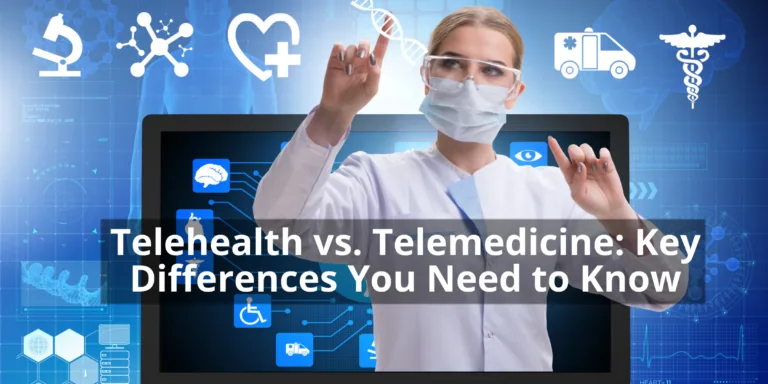Precision Medicine: Revolutionizing Healthcare in the 21st Century
The 21st century marks a revolutionary era in healthcare, driven by technological breakthroughs and deeper insights into human biology. At the forefront of this transformation is precision medicine, a personalized approach that tailors medical care to individual patients based on their unique genetic makeup, lifestyle, and environment.
Unlike the traditional one-size-fits-all model, precision medicine represents the future of healthcare, offering targeted treatments and proactive prevention strategies.
This article delves into the science, applications, benefits, challenges, and future of precision medicine, demonstrating why it is hailed as a game-changer in modern medicine.
This article is intended for informational purposes only and is not a substitute for professional medical advice, diagnosis, or treatment. Please consult a qualified healthcare provider before making decisions related to your health or medical care.

What is Precision Medicine?
Precision medicine is an innovative medical model that leverages detailed information about a person’s genes, proteins, and environment to diagnose and treat diseases more effectively. It moves beyond standard protocols, offering tailored solutions that increase treatment efficacy and reduce side effects.

Key Principles of Precision Medicine
- Genetic Focus: Identifying individual genetic variations that influence health and disease.
- Holistic Approach: Considering environmental factors such as diet, pollution, and workplace hazards.
- Personalized Prevention: Using predictive tools to develop customized preventive strategies.
- Tailored Treatment: Adapting therapies to match a patient’s unique biological profile.
By integrating these principles, precision medicine transforms reactive care into proactive and personalized healthcare.
The Science Behind Precision Medicine
1) Genomics: Unlocking the Human Blueprint
Genomics, the study of genes and their functions, lies at the heart of precision medicine. Advances in genomic sequencing allow researchers to uncover genetic mutations that predispose individuals to certain conditions.
Case Example: Breast Cancer
Patients with BRCA1 and BRCA2 mutations are at a significantly higher risk of breast and ovarian cancer. Precision medicine uses this knowledge to recommend preventive measures, such as enhanced screenings or prophylactic surgeries, and targeted therapies like PARP inhibitors for those already diagnosed.
Read More: Chemo Side Effects: What to Expect During Treatment
2) Biomarkers: Navigating Disease Pathways
Biomarkers are measurable biological indicators used to detect diseases and guide treatments. In precision medicine, biomarkers help:
- Predict disease risks.
- Diagnose conditions earlier.
- Monitor treatment efficacy.
| Biomarker Type | Examples | Applications |
|---|---|---|
| Predictive | HER2 in breast cancer | Guides targeted therapy |
| Diagnostic | Troponin in heart attacks | Confirms acute cardiac events |
| Prognostic | PSA in prostate cancer | Assesses disease progression |
3) Artificial Intelligence (AI) and Big Data

AI algorithms analyze vast datasets from genetic studies, medical records, and clinical trials to identify patterns and correlations that inform precision medicine.
- Example: AI platforms like IBM Watson assist oncologists in choosing the most effective treatments based on a patient’s tumor profile.
Applications of Precision Medicine
The versatility of precision medicine spans across multiple domains, impacting millions of lives.
1) Cancer Care: A New Hope
Cancer treatment has witnessed the most profound impact of precision medicine. By profiling tumors at the genetic level, oncologists can identify specific mutations and design targeted therapies.
Read More: Chemo Side Effects: What to Expect During Treatment
- Example: Immunotherapy drugs like Keytruda work by reactivating the immune system to attack cancer cells based on specific biomarkers.
2) Diabetes and Cardiovascular Disease Management
Precision for medicine enables personalized approaches to chronic disease management.
- Case Study: Pharmacogenomics in hypertension identifies patients who are non-responsive to common blood pressure medications, allowing doctors to prescribe alternatives that work.
3) Rare Diseases: A Breakthrough for the Undiagnosed
Patients with rare diseases often face years of misdiagnosis. Precision medicine accelerates accurate diagnoses and provides targeted solutions.
- Example: Gene therapy for spinal muscular atrophy (SMA) has significantly improved outcomes for affected children.
4) Pediatrics: Focusing on Developmental Needs
Precision medicine ensures treatments for children are safe and effective, taking into account their growth and developmental stages.
The Benefits of Precision Medicine
Precision medicine offers significant advantages that reshape the healthcare landscape:
1) Enhanced Treatment Success
Treatments are tailored to individual patients, increasing efficacy.
- Example: Targeted therapies in lung cancer, like EGFR inhibitors, have shown remarkable success compared to traditional chemotherapy.
2) Fewer Side Effects
By avoiding trial-and-error prescribing, precision medicine minimizes adverse reactions.
- Example: Pharmacogenomic testing prevents life-threatening allergic reactions to drugs like carbamazepine in individuals with specific genetic variations.
3) Proactive Preventive Care
Genetic testing helps identify risks before diseases develop, enabling early interventions.
Challenges and Ethical Considerations
1) Data Privacy
The use of sensitive genetic information raises concerns about data breaches and misuse.
- Solution: Implementing robust data protection frameworks and ensuring patient consent can mitigate risks.
2) Accessibility
Precision medicine remains expensive, creating barriers for underserved populations.
- Solution: Collaborative efforts between governments, insurers, and industry leaders are essential to make precision medicine affordable.
3) Ethical Dilemmas
Questions about the ownership and use of genetic data highlight the need for transparent policies.
The Future of Precision Medicine
The next decade will see precision medicine expand into everyday healthcare. Key advancements to watch include:
- Wearable Devices
Smartwatches and fitness trackers will integrate with precision medicine to provide real-time health data.
- Global Collaboration
Anonymized data sharing across nations will accelerate research and enable breakthroughs in rare disease treatment.
- Precision Public Health
Personalized approaches to managing epidemics and pandemics will become a reality.
Real-Life Stories: How Precision Medicine Changes Lives
John’s Victory Over Lung Cancer
John, a 50-year-old smoker, was diagnosed with late-stage lung cancer. Genetic testing revealed a mutation treatable with targeted drugs. Within a year, his tumor shrank significantly, and he returned to work.
Sarah’s Diabetes Journey
Sarah, a 35-year-old mother, struggled to manage her diabetes. Precision for medicine identified a rare insulin receptor mutation, leading to a revised treatment plan that stabilized her glucose levels.
Charting the Horizon: Cutting‑Edge Research Driving Precision Medicine Forward
In recent years, precision medicine has leapt off the page of research journals into real‑world care, and today’s breakthroughs are nothing short of awe‑inspiring. We’re finally piecing together the puzzle of multi‑omics—layering genomics with proteomics and metabolomics—to spotlight fresh biomarkers that guide life‑changing treatments.
At the same time, AI algorithms are learning to predict who will respond best to which therapy, tailoring care in real time. Meanwhile, CRISPR gene‑editing trials are quietly rewriting the story for patients with rare cancers and inherited disorders.
Add to that the rise of liquid biopsies and wearable health sensors, and you’ve got a future where we monitor, adapt, and intervene before disease ever takes hold. It’s an exhilarating time to be part of this journey.
Tips for Patients Considering Precision Medicine
- Ask Your Doctor: Inquire if genetic testing could inform your treatment.
- Research Clinics: Seek specialized centers that offer precision medicine services.
- Understand Your Insurance: Check coverage options for genetic testing and targeted therapies.
Conclusion
Precision medicine is not just a scientific innovation; it’s a revolution that transforms how we approach healthcare. By focusing on the unique characteristics of each patient, it delivers better outcomes, reduces risks, and enhances quality of life. While challenges like accessibility and privacy remain, ongoing advancements promise a future where personalized care becomes the norm.
Take charge of your health by exploring how precision medicine can benefit you or your loved ones. Speak with your healthcare provider today to embark on a journey toward tailored, effective care.
FAQ
1. What is precision medicine in simple terms?
Precision medicine is a personalized approach to healthcare. It uses information about your genes, environment, and lifestyle to create tailored treatments and preventive strategies for your unique needs.
2. How is precision medicine different from traditional medicine?
Traditional medicine often follows a one-size-fits-all model, prescribing treatments based on what works for the majority. Precision medicine, on the other hand, focuses on the individual, ensuring treatments are specific to their genetic makeup, lifestyle, and environment.
3. What diseases can precision medicine treat?
Precision medicine has shown remarkable success in treating:
-Cancer (e.g., breast, lung, colon)
-Rare genetic disorders
-Cardiovascular diseases
-Diabetes
-Neurological conditions (e.g., Alzheimer’s)
It is also being explored for infectious diseases and autoimmune conditions.
4. Is precision medicine covered by insurance?
Coverage varies depending on the insurance provider and the specific precision medicine service. Genetic testing and targeted therapies may be covered in some cases, especially if they are medically necessary. Always consult your insurer for details.
5. How safe is precision medicine?
Precision medicine is generally safe, as it uses advanced diagnostics to reduce trial-and-error in treatments. However, it’s essential to work with qualified healthcare providers to ensure accurate testing and appropriate care.
6. How much does precision medicine cost?
The cost can vary widely based on the type of service:
-Genetic testing: $100 to $5,000
-Targeted therapies: $10,000 to $100,000 per year
As technology advances, these costs are expected to decrease.
7. Are there ethical concerns with precision medicine?
Yes, common ethical concerns include:
-Privacy and security of genetic data
-Potential misuse of genetic information by employers or insurers
-Equity in access to precision medicine
Governments and organizations are working to address these challenges through regulations and policies.
8. Can children benefit from precision medicine?
Absolutely. Precision medicine can identify genetic disorders early in children, leading to quicker diagnoses and tailored treatments. It is particularly beneficial for conditions like cystic fibrosis, childhood cancers, and developmental delays.
9. How can I get started with precision medicine?
-Speak with your healthcare provider to discuss if precision medicine is right for you.
-Consider genetic testing, especially if you have a family history of certain conditions.
-Look for healthcare centers or clinics specializing in precision medicine.
10. What role does artificial intelligence play in precision medicine?
AI helps analyze vast amounts of genetic and clinical data, identifying patterns that can guide personalized treatment plans. It enhances the accuracy and efficiency of diagnoses and treatment decisions.






